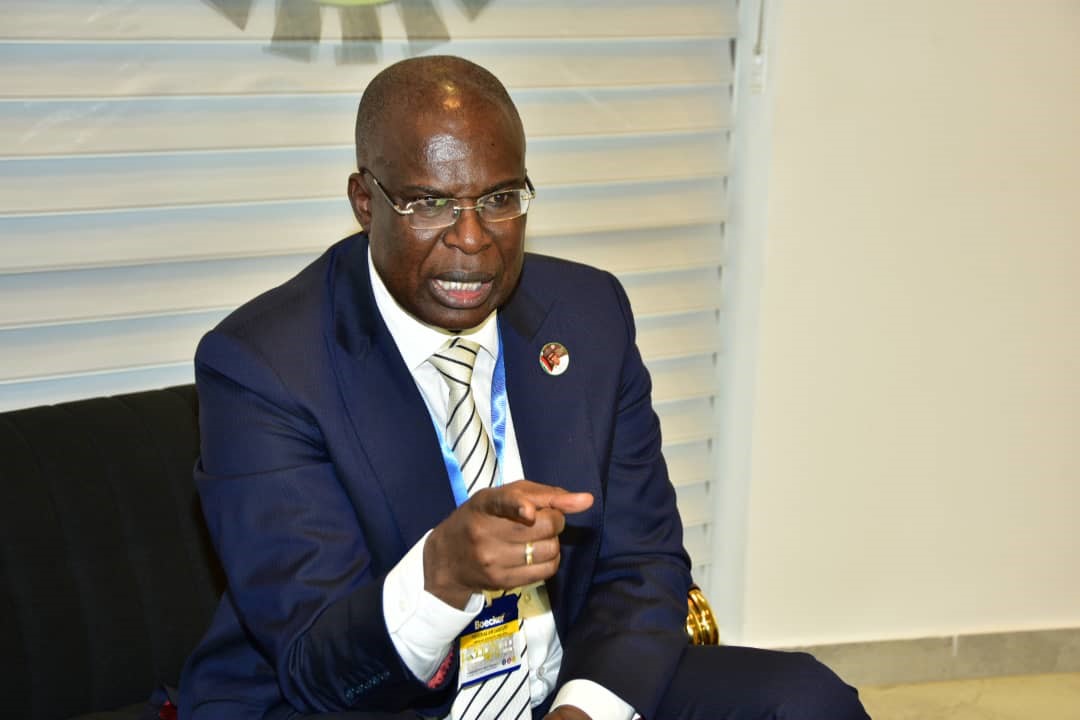The Organization of Petroleum Exporting Countries (OPEC) Special Envoy and Nigeria’s Minister of State for Petroleum Resources, Timipreye Sylva on Thursday left Nigeria for Equatorial Guinea on the first leg of his four-nation diplomatic shuttle.
The special envoy is scheduled to also visit Gabon, Congo Brazzaville and South Sudan within the week as part of his assignment to consult his counterparts in these oil producing countries on issues of common interest bordering on OPEC business.
During the visit, the Special Envoy is expected to discuss matters pertaining to conformity levels with the voluntary production adjustments and explore how participating countries can collectively support and assist each other in achieving full conformity with their supply adjustments.
Also, Mr Sylva would discuss with relevant authorities the compensation mechanism in accommodating underperformed volumes as agreed at the June ministerial meetings, and later amended in September 2020.
On February 3, 2021, Mr Sylva was appointed by OPEC as its Special Envoy charged with the responsibility of coordination further consultations with the group’s ‘Declaration of Cooperation’ (DoC) participating countries.
The DoC consists of OPEC member countries and their non-OPEC counterparts, led by Russia, that consented to a resolution in November 2016 to implement a production cut of 1.2 million barrels per day, effective from January1, 2017 with the aim of strengthening oil prices and stabilizing the global oil market.
Members of the DoC include Angola, Algeria, Ecuador, Equatorial Guinea, Gabon, Islamic Republic of Iran, Iraq, Kuwait, Libya, Nigeria, Qatar, Saudi Arabia, United Arb Emirate, Venezuela, Azerbaijani Bahrain, Brunei Darussalam, Kazakhstani, Malaysia, Mexico, Oman, Russian Federation, South Sudan, and Sudan.
Mr Sylva’s schedule of assignment as special envoy involves consultations with DoC members to ensure they complied with the agreement by OPEC to limit their crude oil output capacities to boost prices and stabilize the international crude oil market.
At the peak of the devastation of the global COVID-19 pandemic, the price of crude oil plummeted to as low as $10 per barrel, forcing OPEC to adopt various strategies to boost price and rebalance market.
Part of the strategies by the 60-year-old oil group was to rally all its members and their allies in the non-OPEC group led by Russia to agree under the canopy of OPEC+ to cut their production and limit supplies to the market.
The consensus built by the OPEC and non-OPEC members in November 2016 to implement a production cut of 1.2 million barrels per day capacity, effective January 1, 2017 succeeded in gradually strengthening crude oil prices and stabilizing the global oil market.
Following the success of the initial decision, which saw OPEC+ cutting a total of 9.7million barrels per day between May and June 2020, and the impact on the market, members agreed to extend further the intervention.
In the second phase of the output cut, which came into effect in July 1, 2020, about eight million barrels per day was cut from members’ production till December 2020.
Under the subsisting agreement, a further six million barrels per day is currently affected under ongoing cuts between January 2021 and April 2022.
With the arrangement, crude oil inventories in the U.S. on Thursday have continued to build steadily with price rising above $61 barrels.
The choice of Nigeria’s Sylva is seen by analysts as a way of rewarding the West African giant for beating daunting odds to achieve full compliance with the OPEC output cut programme, despite its economic challenges.
Although Nigeria has the capacity to produce about 2.5 million barrels per day, excluding condensate, Nigeria has adhered to the agreement to limit its production below its reference production volume.
In October 2018, the country’s reference production was about 1.829 million barrels per day of dry crude oil. But it agreed to adjust the capacity to about 1.412 million barrels per day between May and June 2020.
Subsequently, the country kept the production at about 1.495 million barrels per day between July and December 2020, and current at about 1.579 million barrels per day for the period between January 2021 and April 2022.
Mr. Sylva is expected to deploy Nigeria’s credentials as a full compliant member country of OPEC to encourage the four nations to stay the course and abide by the cuts and general OPEC cooperation principles.
Minister Sylva is expected back in Nigeria next week.



